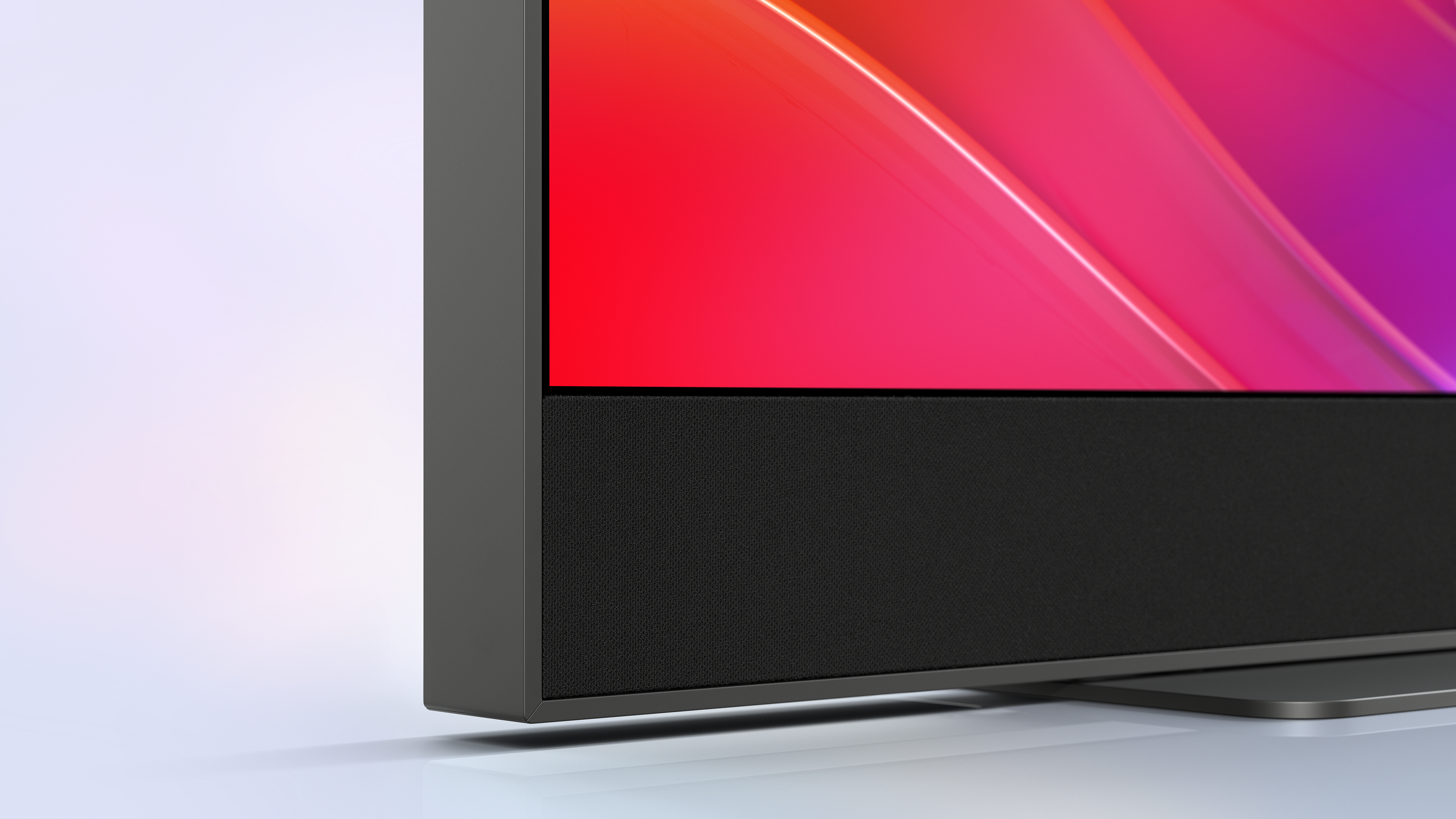Sky says it's not after OLED TV buyers with Glass Gen 2 – and I think that's a mistake
Money is tight for most of us – but that’s why I wanted Sky to go big with its next TV

Today, Sky unveiled its Sky Glass Gen 2 TV and teased a second, more affordable Sky Glass Air set, which is set to get a proper full reveal at an unspecified point later this year.
And, to be clear, the Gen 2 features some notable upgrades on the original Sky Glass, which launched in 2021 and earned a respectable, but not quite perfect four-star rating from our reviewers at the time.
In case you missed the original news, the short version is that the new Sky Glass will be available tomorrow, 12th February, with prices starting at just £14 per month. This is roughly the same price as the original and puts it in the same bracket as the Amazon Fire TV Omni QLED.
The key upgrades include an improved 3.1.2-channel Dolby Atmos-ready sound system that, according to Sky, will “remove the need for a separate sound system”. Yes, we’ve heard and poo-pooed this claim before, but considering the fact we flagged average audio as an issue on the original Sky Glass it’s still a welcome move.
While the QLED panel hasn’t been upgraded to having a Mini LED backlight, Sky claims it has more dimming zones and more advanced local dimming powers than the original Glass, allowing it to produce better black levels, clearer colours and generally better performance. Considering how impressive recent FALD sets (including the four-star Panasonic W90A I reviewed at the end of last year) have been, there could well be some truth to this claim – but we’ll need to get the new model in to confirm this.
Despite all of this, throughout the presentation, I couldn’t help but think, 'why didn’t Sky go for bigger upgrades to its new TV’s panel tech?' And, while many would talk about Mini LED, which is established in the mid-range market, my mind went a step further – surely Sky should make an OLED!
Sky representatives at the Glass Gen 2’s launch event, which was attended by our TV & AV Editor, Tom Parsons, made it very clear the firm is not interested in going after the OLED market. This is apparently largely due to the fact it thinks its customers care more about value and don’t want to splurge that much for a TV. Or, if they do, they’ll just buy one from LG, Samsung, Sony or Philips and connect a Sky Stream puck to it.
Get the What Hi-Fi? Newsletter
The latest hi-fi, home cinema and tech news, reviews, buying advice and deals, direct to your inbox.
Specifically, a Sky spokesperson told us: “we wanted to expand the range so that everyone can afford our products. We're really, really thoughtful and want to make sure Sky is accessible and affordable for everyone”.
I agree with the primary point around value. I know plenty of people looking to consolidate and reduce their spending. For them, a holistic package including your content subscriptions, TV and sound system makes sense. But I’d argue that doesn’t rule out OLED. In fact, if anything, it makes a stronger case for it.
In my personal life, I know plenty of people who want an OLED but simply can’t justify paying the four-figure cost for even an entry-level TV with the tech, let alone a flagship model. Look at our LG G5, Panasonic Z95B, Philips OLED910 and Samsung S95F hands-ons and you’ll see that even in 2025 these will set you back a hefty amount of cash...
So, offering one on a subscription model is appealing, especially one where Sky could even potentially sell the hardware close to cost price as it would be making money on a subscription and the content services it provides.
This is why, for me, it would have actually made sense to offer an OLED option alongside the cheaper Glass Gen 2 and Glass Air. This would have given home cinema fans at every end of the market an option and an entry point to the entertainment platform.
MORE:
These are the best cheap TVs we've reviewed
Our picks of the best OLED TVs
We rate the best 65-inch TVs

Alastair is What Hi-Fi?’s editor in chief. He has well over a decade’s experience as a journalist working in both B2C and B2B press. During this time he’s covered everything from the launch of the first Amazon Echo to government cyber security policy. Prior to joining What Hi-Fi? he served as Trusted Reviews’ editor-in-chief. Outside of tech, he has a Masters from King’s College London in Ethics and the Philosophy of Religion, is an enthusiastic, but untalented, guitar player and runs a webcomic in his spare time.
